By Stephen Beaumont
There may be main thoroughfares in Ontario quainter than Niagara-on-the-Lake’s Queen Street, but if there are, they are not many.
From the tree-lined sidewalks to the grand theatres, the boutiques to the wine bars, the entirety of the Historic Old Town appears almost stage-managed in its quaintness.
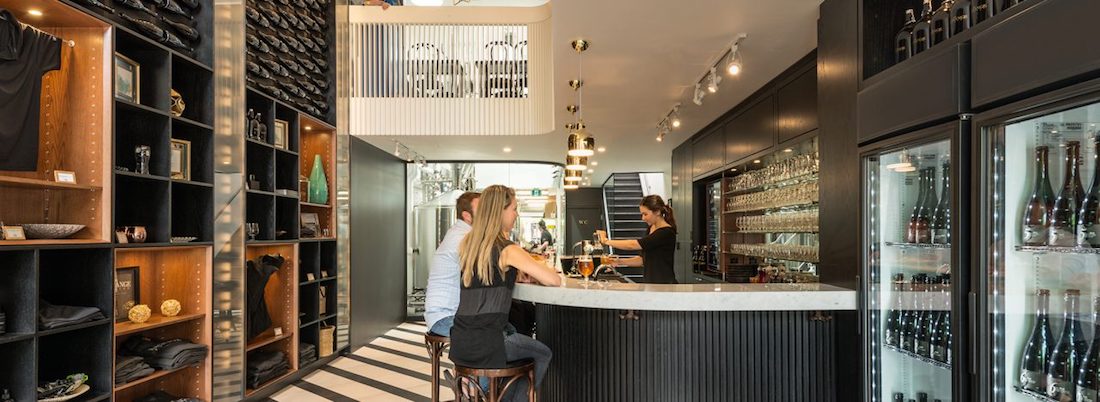
In the midst of this fairy tale-worthy tableau, or more precisely near one end of Queen Street, there stands a business which, as little as a decade ago, would have seemed ridiculously out-of-place, but today appears as an almost de rigueur feature: a brewery and taproom. Specifically, The Exchange Brewery, housed in, and named after, the building that once housed the region’s first telephone exchange.

Approaching its fifth anniversary in January, The Exchange is the brainchild of Robin Ridesic, above, a management consultant who was driven by her love of homebrewing to open a brewery she envisioned as “the Russian River of the north,” referencing the widely respected Sonoma County brewery known for both its barrel-aged, mixed fermentation beers and hop-forward IPAs. To that end, she sought a prominent placement in wine country – check! – a robust supply of mostly ex-wine barrels – 50 to start and over 300 now, check again! – and a brewer familiar with the ins and outs of managing such a program – check yet again, but it was touch-and-go for a while.
That brewer is Sam Maxbauer, and the touch-and-go part was enabling his emigration from Michigan, where he worked at another well-known barrel-focused brewery, Jolly Pumpkin Artisan Ales.
“The hard part was convincing Canadian immigration officials that I should be allowed to bring Sam’s unique expertise into the country, the same way a multinational brewing company would, even though I was a start-up and so couldn’t show historical profitability,” recalls Ridesic, “I spoke with people, filled out forms, did everything, but curiously enough it wasn’t until I hired immigration lawyers to act on my behalf that it all got worked out.”
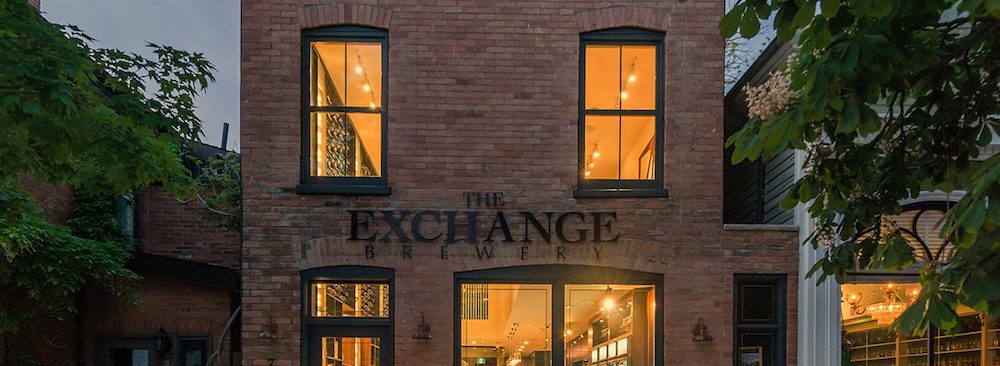
Throughout that time, Ridesic had Maxbauer working with her on all elements of the nascent brewery, from floor plan to formulation, which took over a year to complete. Once open, the laser focus has been on barrel-conditioned beers and working closely with area farmers and winemakers, with the odd concession to popular tastes made along the way, such as moderating Maxbauer’s original strong beer focus – “We found we had to start making beers below 7%,” chuckles Ridesic – adding fashionable styles to the roster, such as the current favourite, New England IPA, and canning some of their brands.
Other, more recent changes have been more circumstance-driven, such as the expansion of their retail side to include increased food offerings and products from Maison Apothecare, the small batch beauty and wellness company that was forced by COVID restrictions to shutter its shop a few doors down from The Exchange.

Outside of what they sell through their tasting room and shop – which includes regular sushi nights, principally because Ridesic loves sushi – The Exchange has one year-round and one rotating quarterly listing at the LCBO. Currently, the regularly available beer is their New England IPA, while at the time of writing the seasonal was changing from Blackberry Pi to Je Ne Sais Quoi, a barrel-conditioned saison flavoured with lemongrass and ginger.

Anyone with a keen interest in beer or a beer enthusiast on their Christmas gift list, however, will want to either visit The Exchange in person or arrange for a delivery – available for free within 25 kilometres of the brewery and on select dates to Toronto with a $50 minimum order – in order to pick up the best of the brewery’s many complex and often cellar-worthy ales. As a surprising bonus for gift-givers and socially distanced party-planners, the brewery will even personalize labels for their statuesque, 750 ml bottles. Simply place your order through their online store and specify your message in the ‘Notes’ section prior to Dec. 15, no minimum order necessary!
A six-pack of
Exchange Brewery beers
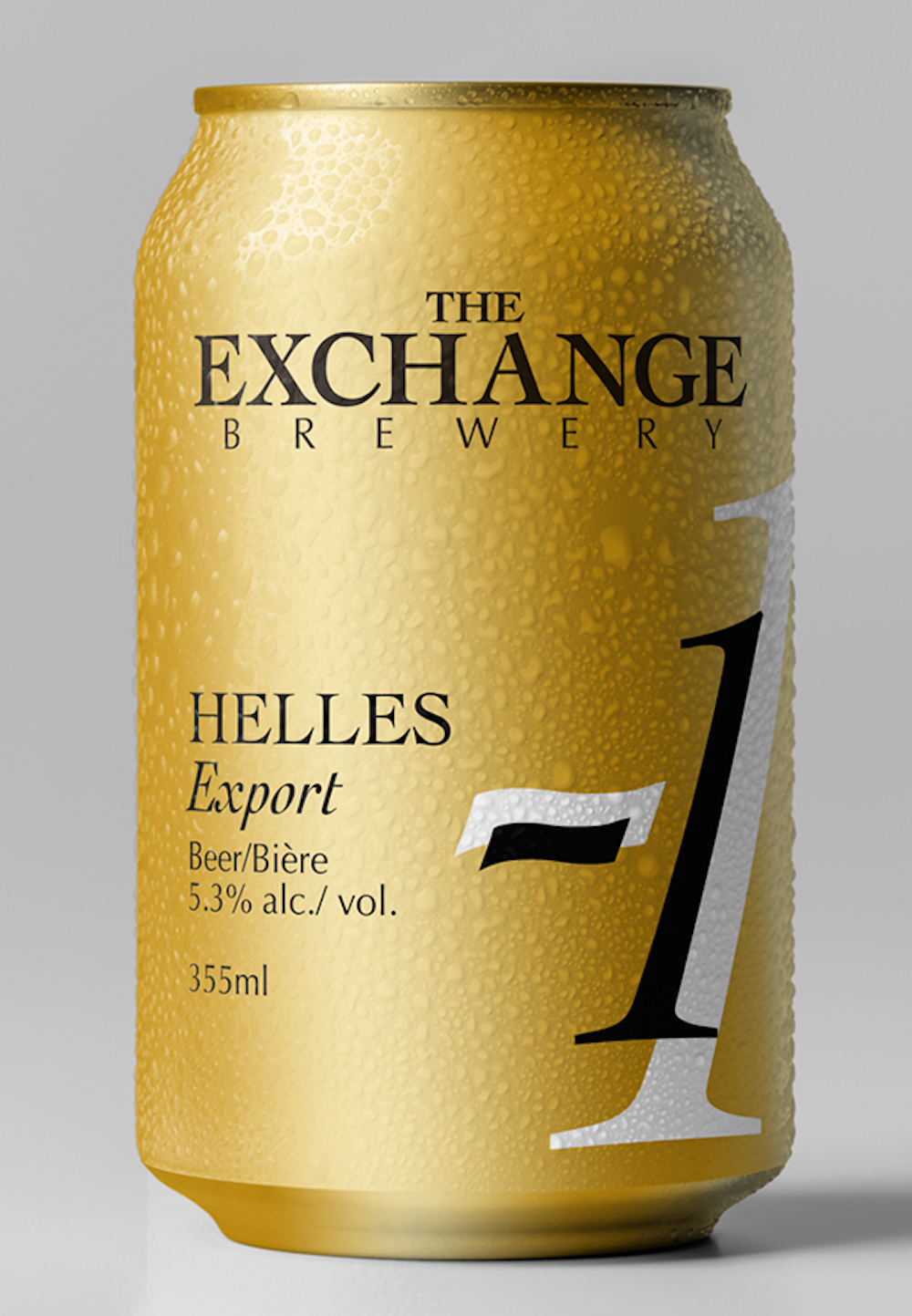
Helles Export Lager (5.3%): Canned in an unfiltered state, this lightly hazy, medium gold lager has an appealingly bready aroma, with soft notes of sweet cereal grain. On the palate, it begins with a hint of malted barley sweetness before growing rounder and fuller on the mid-palate and ending with a satisfying, grassy bitterness. A delightful midday quaffer.
Je Ne Sais Quoi (5.4%): This lemongrass ginger Saison is a collaboration with the brewer from Jolly Pumpkin, who visited for a few days prior to the pandemic. Yellowish gold and hazy, the two flavourings burst forth on the nose, accompanied by a slight and tangy funkiness, yet for all its aromatic oomph, it is fairly mild-mannered on the palate, with citrusy notes up front yielding to an assertive yet balanced ginger character accompanied by softly peppery spice. A lovely aperitif beer or intermezzo between dinner courses.
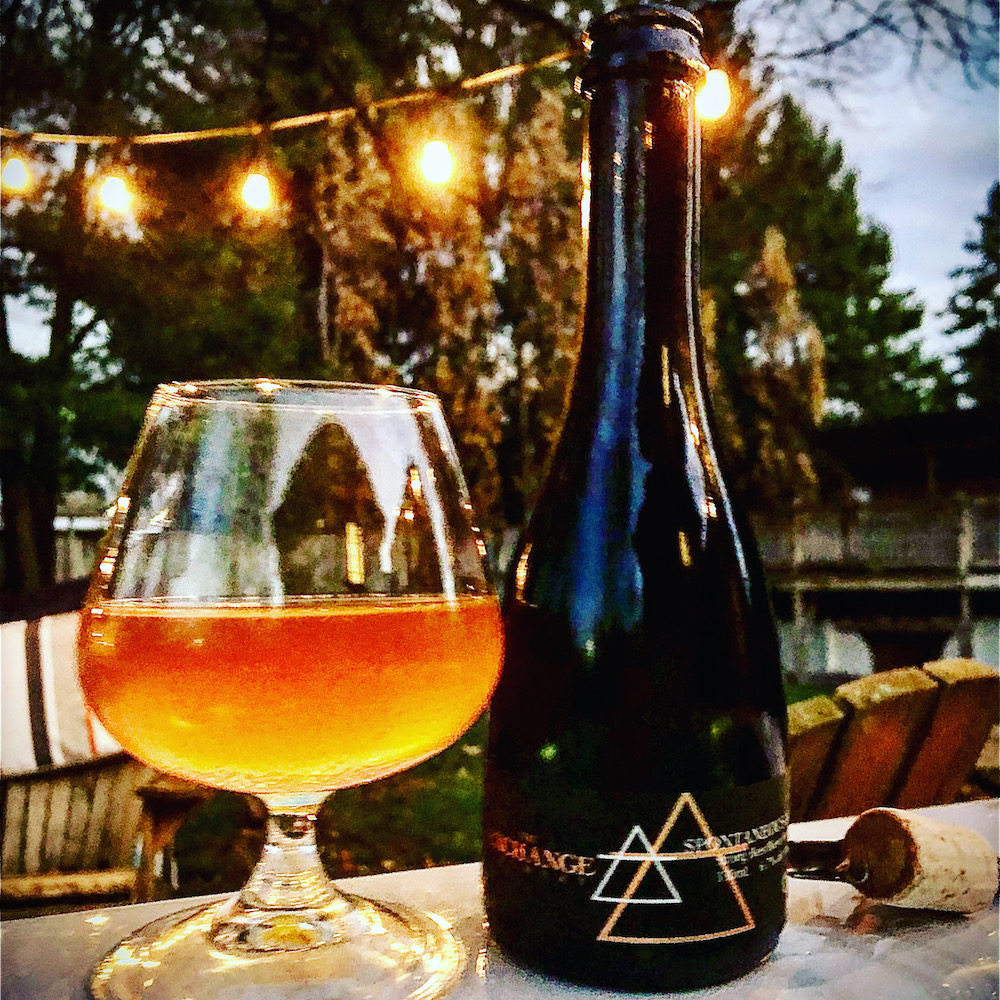
Spontaneous Ale (6.7%): Fermented with the beer equivalent of a sourdough mother – wild yeasts and other organisms collected and combined over time – this corked and capped beer is a Niagara take on the traditional Lambic beers of Belgium. It pours a rich, hazy gold and offers a complex aroma of citrus, wet grain, hay, and stone fruit. On the palate it is full and complex, beginning with a slightly appley sweetness before growing mildly tart and lemony, then more biscuity and creamy, and finally dry and quenching. An outstanding beer to be enjoyed anytime you might otherwise select sparkling wine.
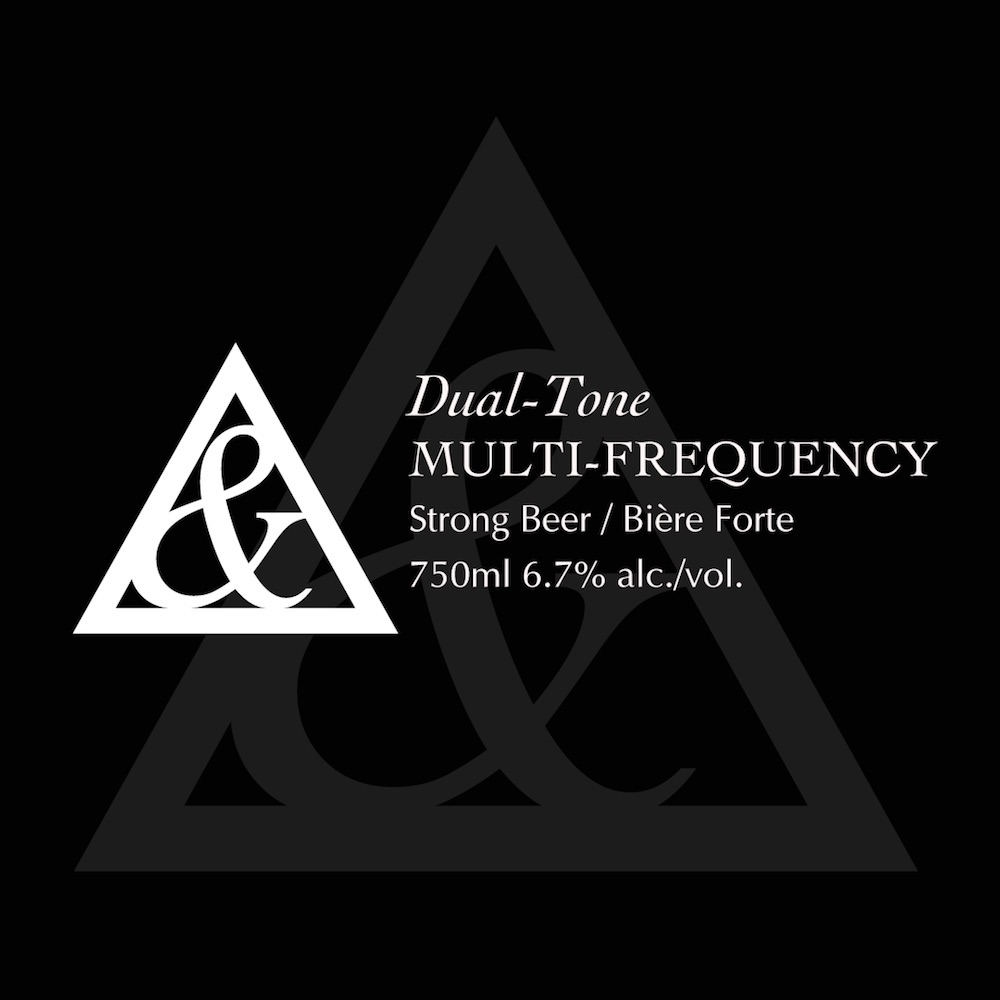
Dual-Tone Multi-Frequency (6.7%): A blend of the brewery’s Flanders Red and Spontaneous Ale with a lovely light burgundy colour and an aroma of tart plum, oak, musty Brettanomyces and a slightly sherried, raisiny note. The body has a soft sweetness up front, with a mix of berry flavours and red plum leading to growing tartness with sour cherry and lemon zest notes joining lingering plum. On the finish, it is tart and dry, a little over oaky, and leaves a lingering impression of dried cherries. A lovely and well-structured mix of flavours, suitable as aperitif.

Foreign Exchange Stout (7%; 11/20): Black colour with a rich and roasted aroma, dark chocolate and earthy, mushroomy notes. There is a high cocoa content chocolate sweetness up front, leading to a rich mocha-ish mid-palate with full body and light sweetness, roasted grain notes and a bit of rising bitterness combined with alcoholic warmth. The finish dries to off-dry and lingers with a faint whiff of wood smoke. A more than pleasant nightcap, albeit one just a bit shy on complexity.
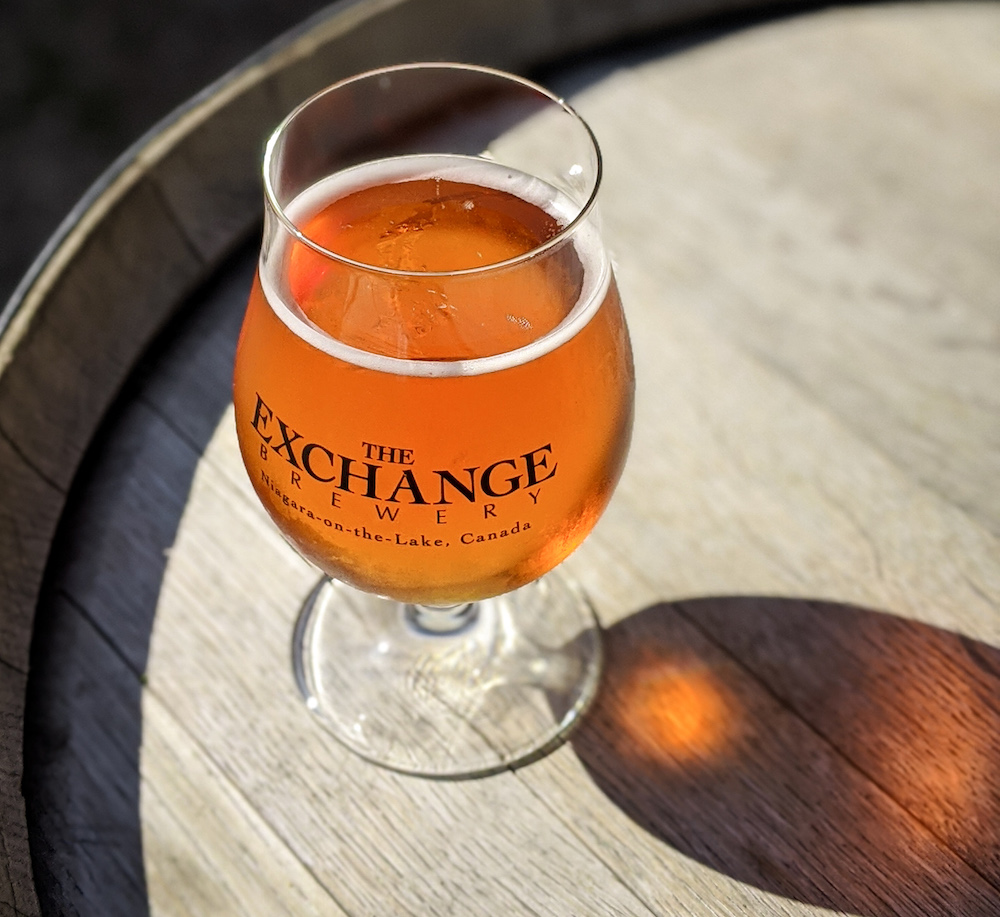
Grand Cru Vintage 2017 (8.4%): Gently spiced and aged on pressed grapes for one year, this bottle has been further aged at the brewery. It pours a deep gold colour with a dense, vinous nose of lemon and apricot, hints of brown spice – nutmeg? – and faint raspberry. The body speaks to its aging at the outset, with white grape notes and a hint of acidity, then segues to a fruitier, but more acidic, middle with plenty of yellow stone fruit and more grapey notes, before finishing quite dry and just slightly bitter. A terrific choice to accompany the Christmas turkey or any roast poultry.
The Exchange Brewery beer can be found here.
About Stephen Beaumont
Stephen Beaumont is one of the world’s leading writers on beer and spirits, with 15 books to his credit, including Canadian Spirits: The Essential Cross-Country Guide to Distilleries, Their Spirits, and Where to Imbibe Them (with Christine Sismondo) and the upcoming, fully revised and updated third edition of The World Atlas of Beer (with Tim Webb).






Comment here